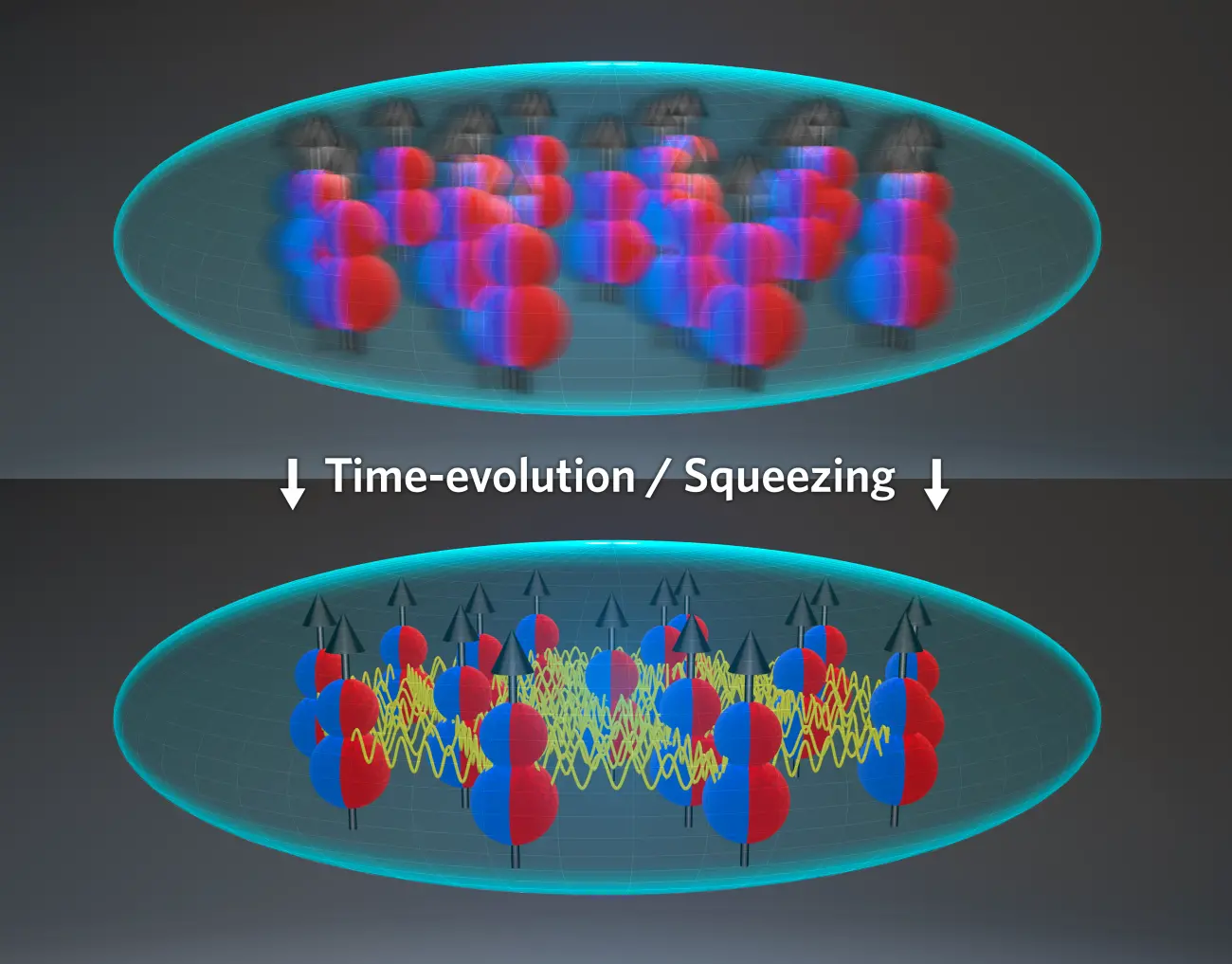Squeezing in 2D dipolar molecular gases
In Plain English

One of the most fascinating aspects of quantum mechanics is the phenomenon of entanglement
Quantum mechanics tells us that particles can be entangled. In a very real sense the properties of one particle depend on the other particle. As a result observing one particle changes the other particle even at arbitrary large separations instanteneously.
One way to create these strange entangled states is through interactions. Dipolar molecules are exciting because they have interactions that are long-ranged, so that the particles do not need to collide to create these entangled states.
These entangled states also turn out to be useful. One potential application is in improving the sensitivity of measurements. Simply put, having many entangled particles allows to make more precise measurements than having N indepedent particles, and be better than what is possible using purely classical objects.
Also have a look at the popular summary in the JILA News
Research

Dipolar molecules are very appealing for quantum simulation, quantum information, and precision measurements
Dipolar molecules offer two main advantages compared to normal cold atom set ups. They interact vie long-range dipolar interactions, and they feature a rich internal level structure manipulable by external electric fields.
We study dipolar molecules in the deeply quantum degenerate regime confined in a two-dimensional pancake like geometry. We show that this is a promising platform for robust quantum enhanced sensing of electric fields.
In the regime where dipolar interactions are faster than motional processes we derive a long-range XXZ spin model in the space of harmonic oscillator states. We find that this model in mode-space is extremely long-range resulting in highly collective and robust spin dynamics and robust entanglement generation.
We also show that the internal level structure allows the realisation of measurement noise robust sensing protocols using time-reversal.